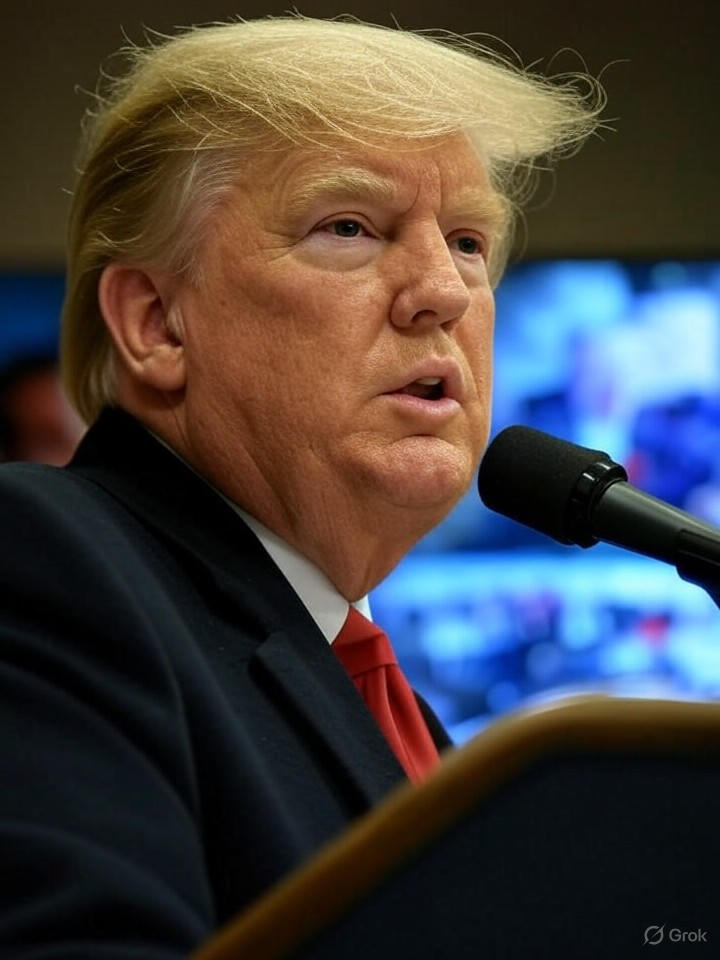Listen to the article
In the corridors of American politics, artificial intelligence is emerging as a potent tool for crafting narratives, with Republican leaders increasingly turning to AI-generated content to amplify their messages. President Donald Trump, known for his prolific social media presence, recently shared an AI-manipulated video featuring musician Kenny Loggins’ song “Danger Zone,” prompting a public rebuke from Loggins himself. This incident underscores a broader trend where GOP figures deploy what critics term “AI slop”—crudely generated deepfakes and synthetic media—to satirize opponents or rally supporters.
The video in question depicted a satirical take on Democratic leaders, but its unauthorized use of copyrighted music highlighted potential legal pitfalls. This is just the latest in a string of such posts by Trump and his allies, raising alarms about misinformation and intellectual property infringement. Experts argue that while these creations may be intended as parody, they blur the lines between humor and deception, especially in a polarized electoral environment.
Beyond Trump’s posts, other Republican leaders have embraced similar tactics. The National Republican Senatorial Committee released a 30-second attack ad featuring an AI-deepfaked version of Senate Majority Leader Chuck Schumer, manipulating his likeness to suggest he viewed a government shutdown as a political win. This ad has sparked widespread concern among observers who fear it sets a dangerous precedent, potentially flooding campaigns with unverifiable synthetic content that erodes public trust.
The ethical debates intensified when Trump reposted an AI-generated video showing a plane dumping sludge on protesters, a move defended by allies like JD Vance as mere “fun.” Such content proliferates in a regulatory vacuum, where laws on deepfakes vary by state, with only a handful mandating disclosures for AI use in political ads.
Critics, including media watchdogs, point to the risks of copyright violations, as seen in the Loggins case where the artist demanded the video’s removal. These posts not only stir controversy but also test the boundaries of free speech versus harmful fabrication. In one particularly controversial example, Trump shared a deepfake of Democratic figures using profanity, complete with stereotypical props like a sombrero, further fueling accusations of inflammatory rhetoric.
On platforms like Truth Social, Trump has posted dozens of AI-enhanced images since returning to the White House, according to an NBC News review. This pattern includes efforts to boost his image while attacking opponents, blending satire with potential misinformation that could sway undecided voters.
The proliferation of AI in politics has drawn warnings from experts about its impact on democratic processes. Posts on X, formerly Twitter, reflect public sentiment, with tech analysts expressing alarm over how realistic deepfakes could become by 2026, making it nearly impossible to distinguish fact from fiction. MAGA supporters are not just consuming but creating their own AI content, often dismissing criticisms as overreactions to what they consider obvious parody.
Political coverage has captured reactions to Trump’s deepfake posts following White House meetings, with one Republican source suggesting these controversies might “top the last shutdown” in drama. These incidents ignite debates on whether current laws suffice, with increasing calls for federal guidelines to curb deepfake abuse without stifling innovation.
Industry experts note that while AI offers creative avenues for engagement, its unchecked use in politics could undermine democratic processes. Republican leaders appear to view these tools as essential for countering perceived media biases, yet the backlash from figures like Loggins indicates growing pushback from copyright holders and concerned citizens alike.
As 2025 unfolds, with elections on the horizon, the challenge lies in fostering transparency—perhaps through mandatory AI disclosures—to ensure technology enhances rather than erodes informed discourse. The media landscape is rapidly changing as synthetic content becomes more sophisticated and widespread, raising questions about how voters will discern truth in campaigns.
Without swift action from lawmakers and platform operators, AI-generated political content risks becoming a staple of political warfare, testing the resilience of truth in an increasingly synthetic information ecosystem. As the technology advances, the gap between believable fabrication and reality continues to narrow, presenting unprecedented challenges for electoral integrity and public trust.
Fact Checker
Verify the accuracy of this article using The Disinformation Commission analysis and real-time sources.




8 Comments
This is a complex issue that highlights the need for a broader conversation about the responsible use of AI and synthetic media in the political sphere. We must find a balance between free expression and the protection of truth and intellectual property.
While I understand the desire to use innovative technologies for political expression, the unauthorized use of copyrighted material and the potential for misinformation are serious concerns that need to be addressed. We should strive for more ethical and responsible use of these tools.
Deploying AI-generated content to spread political messages, even in a satirical context, is a risky proposition. It opens the door to the manipulation of public perception and undermines the integrity of the democratic process.
Absolutely. Deepfakes and synthetic media have the potential to cause real harm if not used with extreme caution and transparency. Oversight and regulation will be key going forward.
The use of AI-generated content in politics raises valid questions about the line between satire and deception. While parody has a place, the risk of eroding public trust is high. We need clear guidelines and accountability measures to ensure these technologies are not abused.
Agreed. Maintaining the integrity of the democratic process should be the top priority, even as we embrace new technological capabilities. Careful consideration of the ethical implications is crucial.
This is a concerning development. While political satire has a long history, the use of AI-generated deepfakes raises serious issues around misinformation and intellectual property rights. We need robust safeguards to ensure these technologies aren’t abused for partisan gain.
I agree. The blurring of fact and fiction is especially troubling in today’s polarized climate. Responsible use of these tools is crucial to maintain public trust.